| کد مقاله | کد نشریه | سال انتشار | مقاله انگلیسی | نسخه تمام متن |
|---|---|---|---|---|
| 2012115 | 1067025 | 2010 | 14 صفحه PDF | دانلود رایگان |
عنوان انگلیسی مقاله ISI
Huntington's disease: pathogenesis to animal models
دانلود مقاله + سفارش ترجمه
دانلود مقاله ISI انگلیسی
رایگان برای ایرانیان
کلمات کلیدی
موضوعات مرتبط
علوم زیستی و بیوفناوری
بیوشیمی، ژنتیک و زیست شناسی مولکولی
زیست شیمی
پیش نمایش صفحه اول مقاله

چکیده انگلیسی
Huntington's disease (HD) is an inherited genetic disorder, characterized by cognitive dysfunction and abnormal body movements called chorea. George Huntington, an Ohio physician, described the disease precisely in 1872. HD is a dominantly inherited disorder, characterized by progressive neurodegeneration of the striatum but also involves other regions, primarily the cerebral cortex. The mutation responsible for this fatal disease is an abnormally expanded and unstable CAG repeat within the coding region of the gene encoding the huntingtin protein. Various hypotheses have been put forward to explain the pathogenic mechanisms of mutant huntingtin-induced neuronal dysfunction and cell death. None of these hypotheses, however, offers a clear explanation; thus, it remains a topic of research interest. HD is considered to be an important disease, embodying many of the major themes in modern neuroscience, including molecular genetics, selective neuronal vulnerability, excitotoxicity, mitochondrial dysfunction, apoptosis and transcriptional dysregulation. A number of recent reports have concluded that oxidative stress plays a key role in HD pathogenesis. Although there is no specific treatment available to block disease progression, treatments are available to help in controlling the chorea symptoms. As animal models are the best tools to evaluate any therapeutic agent, there are also different animal models available, mimicking a few or a larger number of symptoms. Each model has its own advantages and limitations. The present review deals with the pathophysiology and various cascades contributing to HD pathogenesis and progression as well as drug targets, such as dopaminergic, ?-amino butyric acid (GABA)ergic, glutamate adenosine receptor, peptidergic pathways, cannabinoid receptor, and adjuvant therapeutic drug targets such as oxidative stress and mitochondrial dysfunction that can be targeted for future experimental study. The present review also focuses on the animal models (behavioral and genetic) used to unravel pathogenetic mechanisms and the identification of novel drug targets.
ناشر
Database: Elsevier - ScienceDirect (ساینس دایرکت)
Journal: Pharmacological Reports - Volume 62, Issue 1, JanuaryâFebruary 2010, Pages 1-14
Journal: Pharmacological Reports - Volume 62, Issue 1, JanuaryâFebruary 2010, Pages 1-14
نویسندگان
Puneet Kumar, Harikesh Kalonia, Anil Kumar,